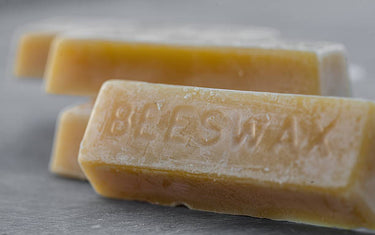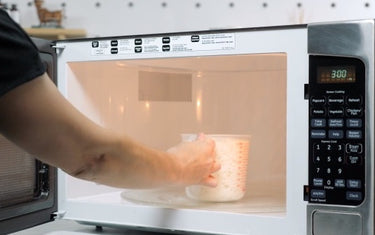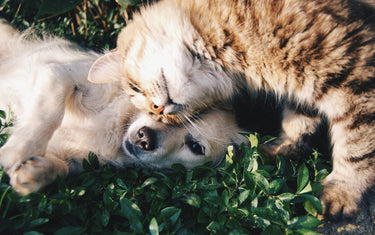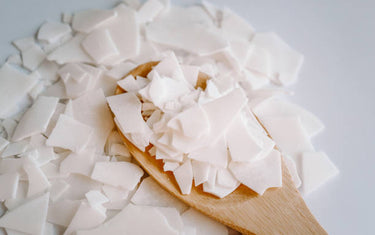5 min read / 29 April 2023 / Laura Garvin Gomez
Does Peppermint Oil Repel Spiders?
Discover whether peppermint oil can be used as a natural spider repellent and learn how to create a homemade spider spray with this step-by-step guide.

Spiders in the UK are harmless little things, but their presence can be unnerving, so it makes sense that you will want to find a way to send them packing.
Using a commercial chemical-based spider repellent is not ideal, as it means covering your home with harsh synthetic substances.
As an alternative, some people use peppermint oil as a natural method of telling spiders to keep clear. We look at the effectiveness of peppermint oil and offer some tips on how to keep spiders away.
Does peppermint oil work on spiders?The common consensus seems to be that spiders are not fans of peppermint oil and will do everything possible to avoid coming into contact with it. Scientific research into the subject is limited, although a 2010 thesis found that Argentine ants and other insects, including spiders, can be repelled using peppermint oil. The belief is that spiders avoid crawling through fragrant oils because they dislike strong odours, which is a big problem for them as they taste and smell using their legs. So, by spraying peppermint oil in areas of the home that are most likely to house spiders, there is an increased chance that they will call it a day and look for a new place to nest. Grab some peppermint essential oil for a discount and make significant savings when you sign up for a wholesale account. The best part? You’ll get access to our entire range of essential oils, all for a discounted price. |

How to get rid of spiders using a peppermint oil spray
Making a peppermint oil spray for spiders may sound complicated, but that couldn’t be further from the truth. Read our guide on how to make your own natural spider repellent. And use our peppermint essential oil and spray bundle.
Once you have made your peppermint oil spider repellent solution, use the tips below to help you get the best results:
- Dust around your home and use the vacuum extension to clear away existing spider webs (including on walls and ceiling corners).
- Open the windows in the room to allow fresh air to enter as you start to spray.
- Shake the solution well and spray around the house, focussing heavily on the corners, doors and windows.
- Repeat this process once a week. If spiders are still appearing, shorten the spray period to every few days.
Another trick you could use is to add a peppermint plant to the external areas of your home, which can act as a barrier to ward off spiders thinking of entering.
Always take care when handling essential oils, as they are highly concentrated and can cause irritation and allergic reactions in some cases.
If you use all of these tips, peppermint oil will be incredibly effective at dealing with spiders.
What are the dangers of using peppermint oil?
Peppermint oil contains menthol, which can cause skin irritation in some people. In most cases, the oil is completely safe to use in small doses.
As we advise above, it’s a good idea to open windows whilst spraying to let the oil settle, as inhaling large amounts could lead to dizziness, nausea, double vision, or muscle weakness. However, this is more likely to happen if you spray a large amount of undiluted oil (which is why the spray should be diluted with water).
If you are a cat, dog or bird owner, you should take extra precaution when using peppermint oil as it can be toxic.
The inhalation of peppermint oil can cause severe symptoms for your pet, so it may be advisable not to use it at all in areas that they can access.
What smells do spiders hate?
Whilst peppermint oil is often cited as being the most effective repellent against spiders, you may be curious to see if other essential oils will do the trick.
There is not much scientific research about using essential oils to keep spiders away, but you may want to try lavender, citronella, tea tree, lemon or eucalyptus as an alternative to peppermint. Or alternatively you could use a spider repellent essential oil blend.
Some people suggest that cedar mulch can repel spiders and other bugs, or you may want to try a more traditional method of using glue traps (depending on how severe the problem is).
How often should you use peppermint oil for spiders?
To start off with, try spraying the oil around your home about once per week.
If you find that weekly application is still causing spiders to appear before the week is up, try spraying it every two or three days instead. You can also try spraying the oil on plants that typically harbour spiders.
For even greater effects, try strategically placing peppermint plants inside and outside your home to further detract the creepy crawlies.
Peppermint oil sprays will require more frequent application than traditional insecticides, but it's well worth it to keep harmful chemicals out of your home for good.
What if peppermint oil doesn’t work?
In general, spiders in the UK are harmless and tend to be more scared of us than we are of them.
Step towards one and they’ll soon flee to what they believe is a safer spot. Also, don’t forget that spiders play a role in keeping your home bug free, as they love to trap other insects in their web for dinner time.
It’s understandable that you may want your home to be spider-free – although the reality is that just because you can’t see them, it doesn’t mean they aren’t hanging around in the shadows. But if spraying peppermint oil around your home isn’t effective or if you have a large problem on your hands, you may need to take things further.
Spider infestations are rare, but if your home is being overwhelmed by 8-legged pests, then it’s a good idea to call in the professionals to see what they can do to help.

We all encounter spiders at some point, although some of us are more comfortable dealing with them than others. Peppermint oil could offer the natural, chemical-free solution you need to give you more peace of mind at home.
Making a peppermint oil spray is easy, and aside from keeping bugs at bay, it will also add a refreshing fragrance to your home.
Always take care when handling essential oils, and bear in mind that they can be very harmful to cats, dogs and birds.
Want a discount on our peppermint essential oil for spiders? Sign up for a wholesale account and save on our range of peppermint oil products, in particular for large quantities.
|
Product Name |
100% Pure Peppermint (Piperita) Essential Oil |
| Botanical Name | Mentha Piperita |
| Scent Type | Herbs |
| Benefits & Uses | Fresh, Decongestant, Spider Repellent |
| Suitable for Diffusers? | Yes, this peppermint (piperita) essential oil is perfect for diffusers. |
| Suitable for Candles and Soaps? | Yes, this peppermint (piperita) essential oil is perfect for candle and soap making. |
| Extraction Method | Steam Distillation |
| Bottle Type | Tamper proof and UV resistant |










